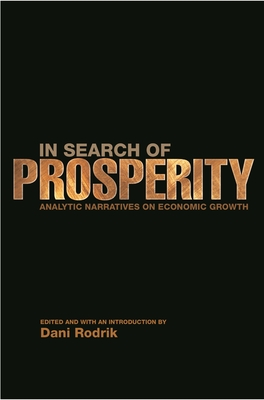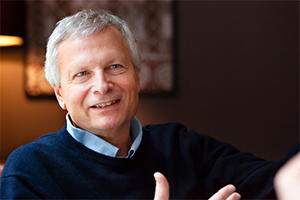

 Princeton University Press
Princeton University Press
In Search of Prosperity: Analytic Narratives on Economic Growth


Key Metrics
- Dani Rodrik
- Princeton University Press
- Paperback
- 9780691092690
- 9.38 X 6.06 X 1.18 inches
- 1.53 pounds
- Business & Economics > Development - Economic Development
- English
 Secure Transaction
Secure TransactionBook Description
The economics of growth has come a long way since it regained center stage for economists in the mid-1980s. Here for the first time is a series of country studies guided by that research. The thirteen essays, by leading economists, shed light on some of the most important growth puzzles of our time. How did China grow so rapidly despite the absence of full-fledged private property rights? What happened in India after the early 1980s to more than double its growth rate? How did Botswana and Mauritius avoid the problems that other countries in sub--Saharan Africa succumbed to? How did Indonesia manage to grow over three decades despite weak institutions and distorted microeconomic policies and why did it suffer such a collapse after 1997?
What emerges from this collective effort is a deeper understanding of the centrality of institutions. Economies that have performed well over the long term owe their success not to geography or trade, but to institutions that have generated market-oriented incentives, protected property rights, and enabled stability. However, these narratives warn against a cookie-cutter approach to institution building.
The contributors are Daron Acemoglu, Maite Careaga, Gregory Clark, J. Bradford DeLong, Georges de Menil, William Easterly, Ricardo Hausmann, Simon Johnson, Daniel Kaufmann, Massimo Mastruzzi, Ian W. McLean, Lant Pritchett, Yingyi Qian, James A. Robinson, Devesh Roy, Arvind Subramanian, Alan M. Taylor, Jonathan Temple, Barry R. Weingast, Susan Wolcott, and Diego Zavaleta.
Author Bio
Dani Rodrik is the Ford Foundation Professor of International Political Economy at Harvard's John F. Kennedy School of Government. He rejoined the Kennedy School in July 2015 after two years at the Institute for Advanced Study as the Albert O. Hirschman Professor in the School of Social Science. He is a co-director of the Economics for Inclusive Prosperity (EfIP) network and president of the International Economic Association. He is affiliated with the National Bureau of Economic Research and the Centre for Economic Policy Research (London) among other research organizations.
Professor Rodrik's research focuses on globalization, economic growth and development, and political economy. He is the recipient of numerous awards, including the inaugural Albert O. Hirschman Prize of the Social Science Research Council and the Princess of Asturias Award for Social Sciences. He was included in Prospect magazine's World's Top 50 Thinkers list (2019) and in Politico magazine's 50 list (2017). His work has been profiled in The Harvard Magazine, Finance & Development, Harvard Kennedy School Magazine, The Chronicle of Higher Education, and the New York Times.
Professor Rodrik is the author of Straight Talk on Trade: Ideas for a Sane World Economy (2017). The book was awarded the George S. Eccles Prize for Excellence in Economic Writing by the Columbia Business School in 2019. He is also the author of Economics Rules: The Rights and Wrongs of the Dismal Science (2015) and The Globalization Paradox: Democracy and the Future of the World Economy (2011). His articles have been published in the American Economic Review, Quarterly Journal of Economics, Journal of Political Economy, Economic Journal, Journal of Economic Growth, Journal of International Economics, Journal of Development Economics, and other academic journals.
His previous books include One Economics, Many Recipes: Globalization, Institutions, and Economic Growth (2007), The New Global Economy and Developing Countries: Making Openness Work (1999), and Has Globalization Gone Too Far? (1997). Professor Rodrik's monthly columns on global affairs are published by Project Syndicate.
Professor Rodrik holds a Ph.D. in economics and an MPA from Princeton University, and an A.B. from Harvard College.
Source: Harvard University
Videos
No Videos
Community reviews
Write a ReviewNo Community reviews